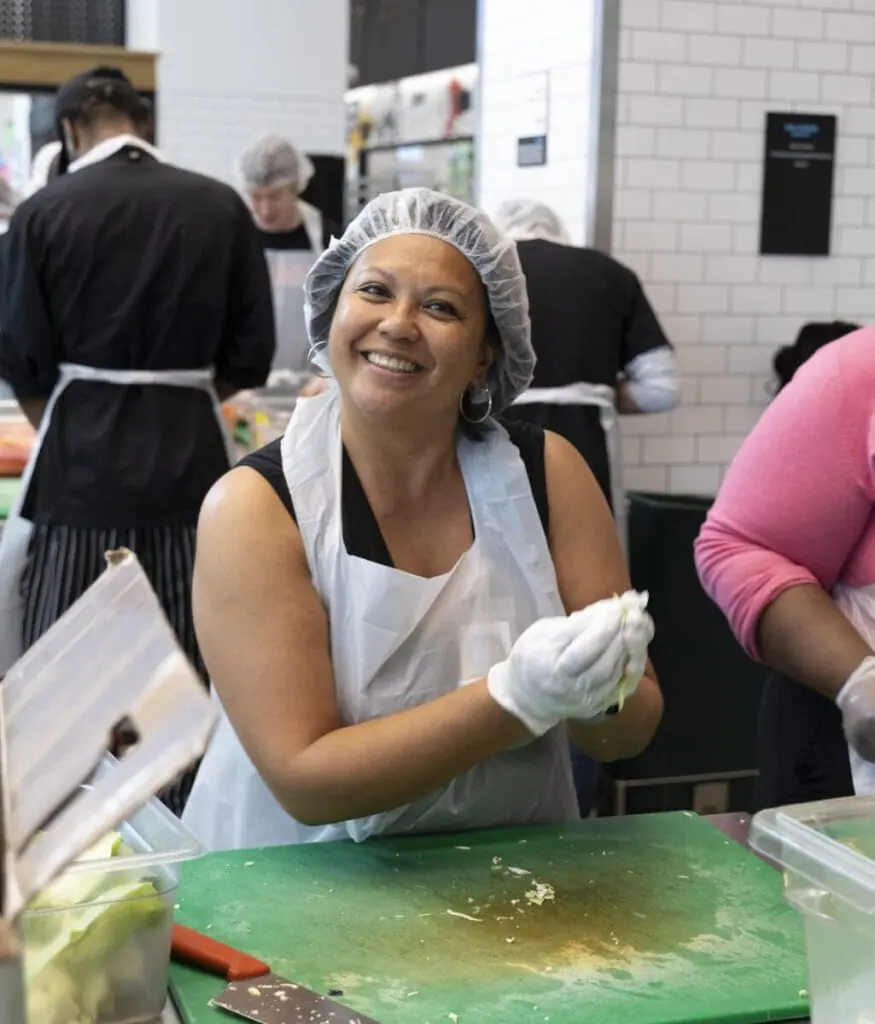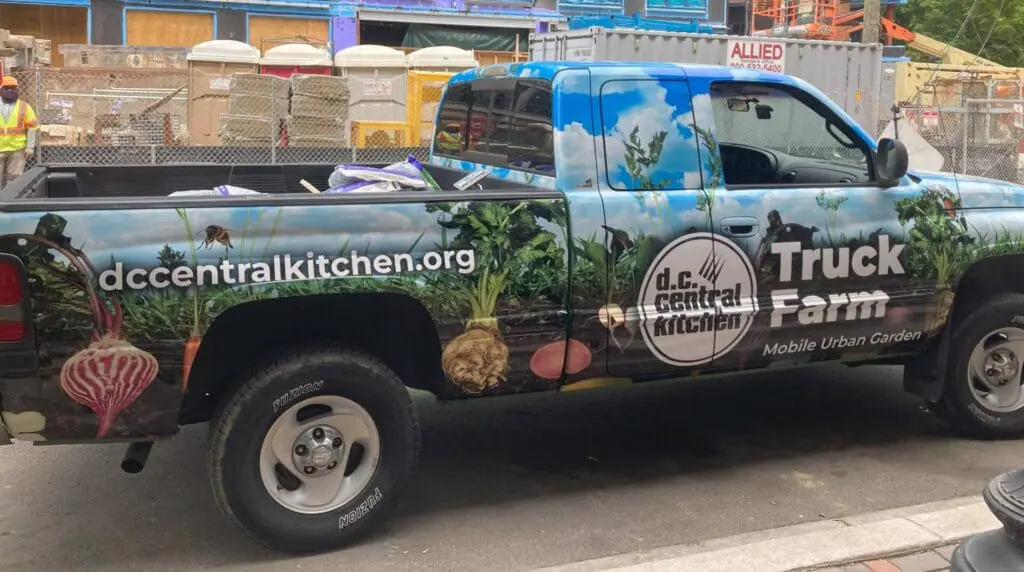By Megan Quiñones, ASU sustainable food systems graduate student
For background on DC Central Kitchen and their CEO Mike Curtin, read Fighting hunger differently at DC Central Kitchen by alumnus Kate Seybold.

This past spring, our cohort traveled to Washington D.C. for our applied food policy immersion where we spent the week in conversation with power players whose work to advance sustainable food systems embodied the tools and tactics we had learned about all semester. I was especially excited for our visit to DC Central Kitchen’s Michael R. Klein Center for Jobs and Justice as it offered the chance to not only be in conversation, but to be in community.
After a morning of chopping veggies, stirring sauces, seasoning chicken, and a variety of other volunteer tasks, our cohort received a tour of the newly opened Klein Center by Vernon, a member of the Guest Experience team. As the tour progressed, the intentionality with which the Klein Center was designed became increasingly clear. Whether it was the single entrance, the organization’s dynamic history on display through a timeline inviting visitors down the hall, the furniture and artwork, or the glass windows which were designed with transparency in mind, Vernon’s words, “We want everyone to see the good work we are doing,” resonated.
Following the tour, our class had the opportunity to hear from the CEO of DC Central Kitchen (DCCK), Mike Curtin, while enjoying a delicious lunch prepared by DCCK. As the food nourished our bodies, the passionate overview of DCCK’s history and its aim to move beyond the model of charity nourished our minds. Curtin’s statement that “charity had become about the redemption of the giver, not the liberation of the receiver” elicited a collective “Mmmmm” from the cohort.
DC Central Kitchen was described as a place of last resort for folks who have been systemically marginalized by generational poverty, involved with the criminal justice system, experienced houselessness, and other generational trauma. Through DCCK’s Culinary Job Training Program, self-actualization becomes a means of liberation. This 14-week no-cost program provides “life skills” alongside “knife skills,” requiring self-empowerment sessions with the intention of setting graduates on the path to find jobs which can become careers. 54% of DC Central Kitchen staff are graduates of the Culinary Job Training Program.

DC Central Kitchen is a social enterprise and a national model for locally sourced, scratch-cooked food. DCCK also has a myriad of other innovative programs like Healthy Corners, Community Meals, Healthy School Food, and mobile urban gardens, called Truck Farms, which all seek to use food as a tool for change.
One concept that I found intriguing this semester in our Tools and Tactics for Food Policy Change course was this idea of the “forgotten E” in food policy: equity. Though, as I sat with everything Curtin shared with our class, I was reminded that equity alone will not bring the change that is required to transform our food systems. DC Central Kitchen pushes beyond equity and serves as a model of transformation that can occur when food system leaders center justice, not charity.
Departing the Klein Center, there were many thoughts circulating in my mind, but a particular comment by Curtin seemed to permeate: “We can do better. We have everything we need to do better, but we also need the will to do it.” As a young person in today’s world, what often keeps me going is my unrelenting belief that a better world is possible. As we left the Klein Center, I was reminded that a better world is not only possible, it is already happening.
We just need the will to keep making it happen.
This blog is part of a series from the Swette Center’s annual Food Policy Immersion, a required course in their two graduate programs. Students met with federal food and agriculture focused officials at USDA, the White House, and Congress alongside many other important influencers of policy in industry and non-profits.